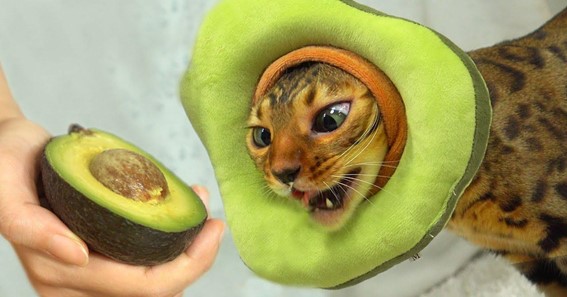Fruits and vegetables are really healthy for us and the healthiest ones have avocados, but can cats eat avocados? This fruit is considered a superfood, so it’s been very popular these days and there are many recipes you can experiment with, but let us know if it’s a good idea to give your cat a taste. Avocado was discovered in Mexico and has been cultivated for about 5,000 years, during which time many recipes have been made using this ingredient. Today, they are used not only as foods but also in skin oils and many other beauty products.
Also read: The best cat collar
Nutritional value
Avocado has a crude fiber composition and is rich in vitamins such as A, C, E, and B6 in addition to folic acid, potassium, and nicotinic acid. All of this is healthy for us and good for cats, but keep in mind that cats are carnivores.
Click here – Which airtrack is better for you?
Avocado’s 18 amino acids provide energy to you and your cat and are a component of muscle development and organ function. They contain a lot of fat, but what you find here contains omega fatty acids that will improve the health of your pet as they have anti-inflammatory properties. Comparing the fat content of avocado with butter, the saturated fat of avocado is 1/30. Avocado is also known for its high antioxidant content, which can boost the cat’s immune system while reducing the risk of cancer.
Questions about persin
The fruits and leaves of avocado contain a substance called persin, and it is said that giving this substance to pets is a bad idea. If you want to know more about the effects of avocados on cats, there are various opinions online and the questions come primarily from that person. Toxic to birds, goats, rabbits, and ruminants. This is because water builds up around the heart and lungs, causing liver and kidney damage.
Click here – Why do you need to Loan?
Fortunately, cats do not have a problem with perspiration and it has been shown that it helps kill cancer cells. The only problems that can arise are overuse or giving it to babies. According to the ASPCA, the only animals that are poisonous to humans are horses, which can cause shortness of breath, but cats can safely eat avocados. That being said, because of the digestive system of the cats that are attached to the meat itself, they will not benefit as much as we do from the properties of this fruit and its assimilation will be more difficult for them. It is therefore important to add only a small amount and consider it as a supplement and not as a basic part of the diet.
How much is it?
So avocados are good for cats, but how much and how much to give them? If a cat eats too much, it may start vomiting or diarrhea. When adding something new to your pet’s diet, always remember to follow your cat’s movements, starting with small portions. If you notice a negative effect, you should stop and investigate the cause. Of course, if your cat reacts badly to certain foods, you should stop eating them.
Avocados should only be considered as a delicacy and should be eaten in small portions. The best option, if you want to provide your cat with all the health benefits of avocados without the risk of upsetting their dietary balance, is to find quality food that contains avocados.
The fruit should be given without leaves and nuts. Remember that your cat’s tolerance to salt is much lower than ours, so you should avoid eating foods that are intended for human consumption. If you have made guacamole, it may contain onions and garlic, both of which are very toxic to cats, so keep it to yourself and keep the cat away. If they eat it incorrectly, you need to go to the vet immediately as the effect can be fatal.
Allergies and poisons
As we said above, Avocado for Cats is only poisonous to birds and horses, but there are still some things to look out for. Avocados can cause breathing problems in cats, as there is a possibility of fluid build-up in the lungs and chest. The same thing can happen in the pancreas or stomach so you should keep the cats under observation after giving them this fruit for the first time.
Excess fat content can cause pancreatitis, which can vary significantly. If you find that the cat is behaving abnormally, you should refer it to a veterinarian, because if you do not look at it in time, it can cause complications like diabetes. High levels of avocados in cats can also cause other symptoms, including constipation, difficulty swallowing, rapid heartbeat, and fever.
Also, be aware that there are several types of avocados and some may contain more persimmons than others. For example, the Guatemalan species contain many toxins that are harmful to cats if eaten in large quantities. Therefore, it is necessary to reduce the amount to a minimum or, even better, not to give your pet. The seeds are too big for most cats to eat, but some cats may try them anyway, so keep them out of their reach because it can kill them. If your cat eats a lot of avocados, you should call your veterinarian to see what he thinks. There are also poison control centers that can help you if needed.
Short answer:
It does not harm them, but at the same time, it is not important for their diet, so it will only be given to cats gently, as an occasional remedy. Good for them, because it improves their skin and shirt.



